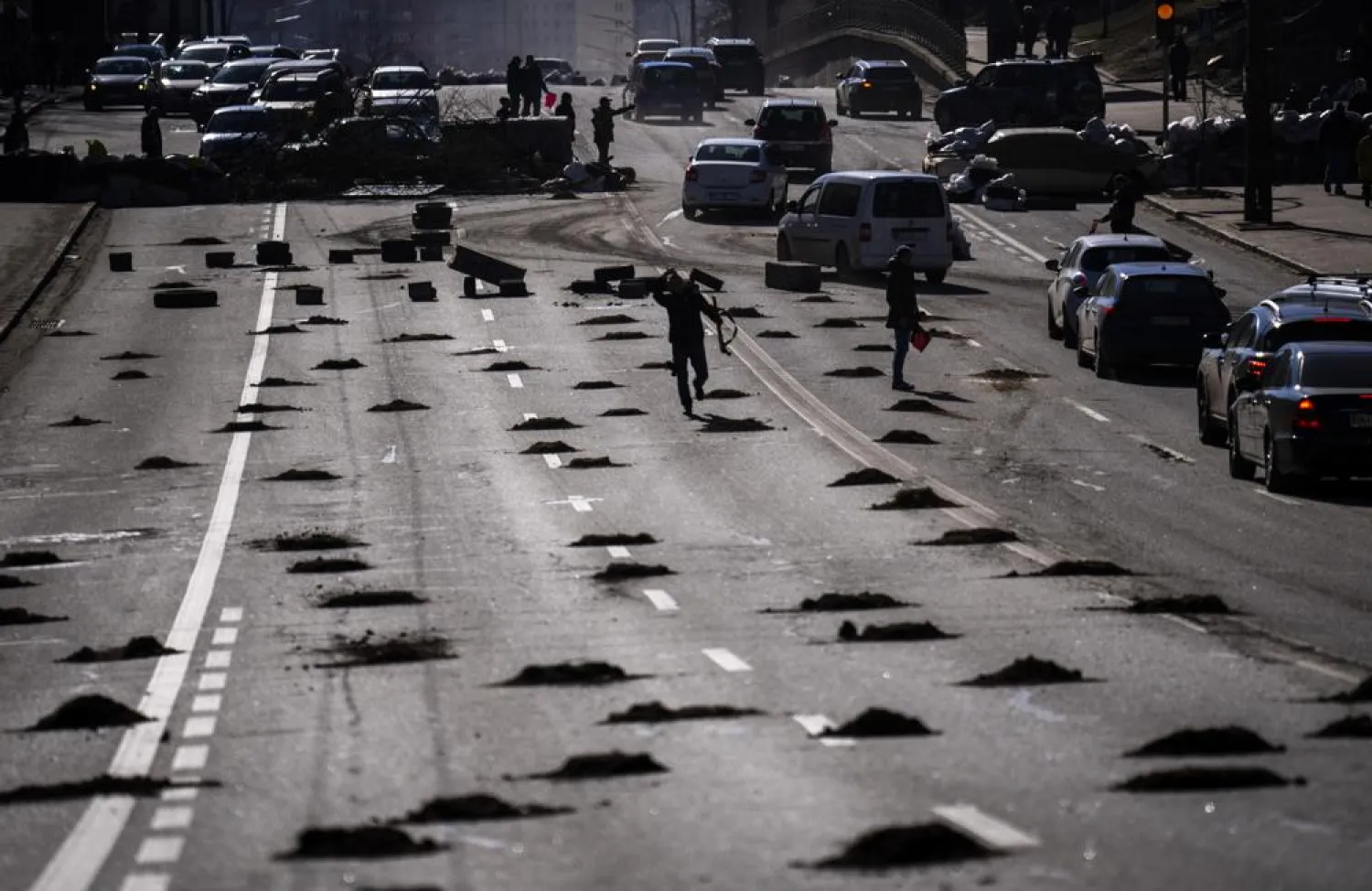Energy giant BP, global bank HSBC and the world's biggest aircraft leasing firm AerCap joined a growing list of companies looking to exit Russia on Monday, as Western sanctions tightened the screws on Moscow over its invasion of Ukraine.
The West has moved to punish Russia with a raft of measures, including closing airspace to Russian aircraft, shutting out some Russian banks from the SWIFT global financial network and restricting Moscow's ability to use its $630 billion foreign reserves.
Russia's economy was already reeling on Monday. The rouble plunged as much as 30% to an all-time low, while the central bank doubled its key interest rate to 20%, kept stock markets and derivative markets closed and temporarily banned brokers from selling securities held by foreigners.
BP, Russia's biggest foreign investor, abruptly announced at the weekend it was abandoning its 20% stake in state-controlled Rosneft at a cost of up to $25 billion, cutting the British firm's oil and gas reserves in half and production by a third.
BP's decision, following British government talks, shone a spotlight on other Western companies with stakes in Russian oil and gas projects, such as ExxonMobil, TotalEnergies and Shell.
Equinor, the energy firm majority owned by the Norwegian state, said it would start divesting its joint ventures in Russia, although a spokesperson said: "It will take some time to untangle a business developed over decades."
Norway's sovereign wealth fund, the world's largest, will also divest its Russian assets, worth about $2.8 billion, while Australia's sovereign wealth fund said it planned to wind down its exposure to Russian-listed companies.
No-go zone
Large parts of the Russian economy will be a no-go zone for Western banks and financial firms after the decision to cut off some of its banks from SWIFT, a secure messaging system used for trillions of dollars' worth of transactions around the world.
The European arm of Sberbank, Russia's biggest lender, faces failure, the European Central Bank warned on Monday, after a run on its deposits.
British bank HSBC said it was starting to wind down relations with a host of Russian banks including the second-largest, VTB, one of those targeted by sanctions, a memo seen by Reuters showed.
Amid the tightening squeeze, even neutral Switzerland said it was adopting European Union sanctions and freezing assets of some Russian individuals and companies. It joined others by imposing sanctions on President Vladimir Putin and other officials.
Some Western companies were suspending operations while others were drawing up contingency plans as they reviewed the rapidly changing landscape for business with Russia.
Daimler Truck is planning to freeze its business activities in Russia with immediate effect, including cooperation with Russian truck maker Kamaz.
Swedish automaker Volvo Cars will suspend shipments of cars to the Russian market until further notice.
Swedish telecoms group Ericsson said it was suspending deliveries to Russia while it assessed the potential impact of sanctions, according to an internal memo. Ericsson could not be reached for comment.
Shipping group Maersk said it was considering suspending all container bookings in and out of Russia.
Several companies with exposure to Russia had their shares pummeled on Monday. Nokian Tyres tumbled after withdrawing its 2022 guidance. It said last week it was shifting some production to Finland from Russia.
Shares in Societe Generale, which owns Russia's Rosbank, and carmaker Renault, which controls Russian carmaker Avtovaz, also fell.
Tit-for-tat
Finnair lost a fifth of its value after withdrawing its 2022 outlook amid airspace closures.
Russia said it was barring airlines from 36 countries from its airspace, including European nations and Canada which had earlier shut their airspace to Russian aircraft. US officials said Washington was considering a similar move.
Leasing firms said they would terminate hundreds of aircraft leases with Russian airlines because of sanctions. Russia has 980 passenger jets in service, with 777 leased and 515 rented from foreign firms, analytics firm Cirium said.
Ireland's AerCap Holdings, the world's biggest plane lessor with about 5% of its fleet leased to Russian airlines, said it would halt leasing to Russia. AerCap's shares dropped more than 12% on Monday.
Asian lessor BOC Aviation said most of its planes in Russia, or about 4.5% of its fleet, would be affected.
US-based United Parcel Service Inc and FedEx Corp , two of the world's largest logistics companies, said they were halting deliveries to Russia and Ukraine.
The EU has banned Russian media outlets RT and Sputnik, while Canadian telecoms operators also stopped offering the RT channel. Google has barred RT and other Russian channels from receiving money for ads on websites, apps and YouTube videos, similar to a move by Facebook.
The EU's internal market chief told the chief executives of Google-owner Alphabet and its YouTube unit on Sunday to ban users pushing war propaganda as part of measures to halt disinformation on Ukraine.









